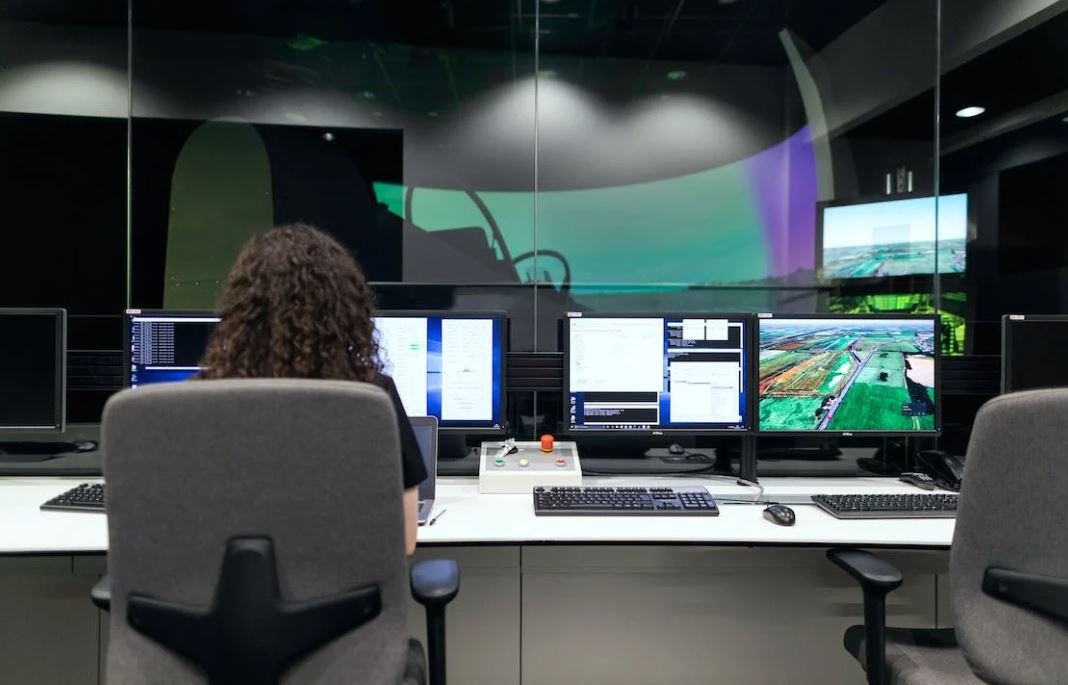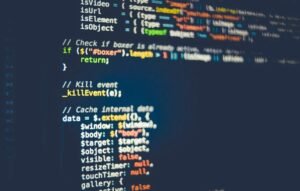AI vs Jobs
Artificial Intelligence (AI) is becoming increasingly prevalent in our society, with its applications ranging from virtual assistants to self-driving cars. While AI offers numerous benefits and advancements, there is concern about the impact it may have on jobs and employment. As AI is capable of automating various tasks traditionally performed by humans, it raises questions about the future of work and the potential displacement of workers.
Key Takeaways:
- AI advancements have the potential to automate certain jobs, causing fears of job displacement.
- The impact of AI on jobs is not all negative – it can also create new job opportunities.
- Adaptability and continuous learning are crucial for individuals to thrive in the age of AI.
**AI has the ability to automate repetitive and mundane tasks**, which can lead to some individuals losing their jobs. However, it is important to note that AI is not solely a threat to employment, but can also create new job opportunities. While certain jobs may be phased out, new roles will emerge that require human involvement and skills that cannot be replicated by machines.
*According to the World Economic Forum, by 2025, machines will perform more tasks than humans, but the majority of jobs will still require human skills such as critical thinking, problem-solving, and emotional intelligence.*
It is crucial for individuals to adapt and acquire new skills to remain employable in the age of AI. This can be achieved through continuous learning and upskilling. By staying updated with the latest developments in AI and mastering complementary skills, individuals can position themselves for new job opportunities that arise as a result of automation.
Automation Potential by Industry
| Industry | Automation Potential |
|---|---|
| Manufacturing | High |
| Transportation | Medium |
| Healthcare | Low |
Automation potential varies across different industries. While some industries like manufacturing have a high potential for automation, others like healthcare have a lower potential. Understanding this variation can help individuals make informed decisions about their career paths and the skills they need to develop.
The Role of AI in Job Creation
- AI can introduce new industries and job roles that did not previously exist.
- AI can enhance productivity and efficiency, leading to increased economic growth and job opportunities.
- AI can augment human capabilities, resulting in improved decision-making and innovation.
According to a report by PwC, AI has the potential to contribute up to $15.7 trillion to the global economy by 2030. This highlights the positive impact AI can have on job creation and economic growth. While job displacement may occur in some areas, overall AI is expected to create new industries and job roles, stimulating economic development.
Skills for the Future
As AI continues to advance, certain skills will become increasingly valuable in the job market. Some key skills for the future include:
- Adaptability
- Complex problem-solving
- Creativity and innovation
- Emotional intelligence
- Data analysis and interpretation
Developing these skills can help individuals remain relevant and valuable in the job market. Employers will increasingly seek individuals who possess a combination of technical expertise and human-centered skills that are essential for collaborating with AI systems.
The Future of Work
While the potential impact of AI on jobs is a topic of concern, it is important to view AI as a tool that can augment human capabilities rather than solely replacing them. The future of work will likely involve a partnership between humans and AI, with humans focusing on tasks that require creativity, critical thinking, and interpersonal skills.
| Type of Task | Automation Potential |
|---|---|
| Repetitive physical tasks | High |
| Human interaction and emotional support | Low |
| Complex decision-making | Medium |
By leveraging AI to handle repetitive and mundane tasks, humans can focus on tasks that require human touch, creativity, and empathy, resulting in a more fulfilling work environment. The future of work will be shaped by the collaboration between humans and AI, where both can complement each other’s strengths and contribute to a more productive and innovative workforce.
In the age of AI, individuals need to embrace continuous learning, adaptability, and a growth mindset to navigate the changing landscape of work. While job displacement may occur, new opportunities will emerge, requiring a combination of technical and human skills. By understanding the potential of AI and equipping themselves accordingly, individuals can thrive alongside AI, shaping the future of work.

Common Misconceptions
AI vs Jobs
There are several common misconceptions surrounding the topic of AI and its impact on jobs. Firstly, many people believe that AI will completely replace human workers, leading to mass unemployment. However, this is not entirely accurate. While AI may automate certain tasks, it also has the ability to create new jobs and improve productivity in various industries.
- AI can free humans from repetitive and mundane tasks, allowing them to focus on more complex and creative work.
- AI can create new job roles in fields such as data science, machine learning, and AI research.
- Collaboration between humans and AI can lead to increased efficiency and improved decision making.
Another misconception is that AI will only affect low-skilled jobs, making them obsolete. However, AI has the potential to impact jobs across all skill levels. While it may automate routine tasks, it also requires skilled workers to develop, implement, and maintain AI systems. Additionally, the demand for jobs that require human empathy, critical thinking, and problem-solving skills is likely to increase in the AI-driven era.
- High-skilled jobs that involve complex decision making may benefit from AI tools that provide data insights and support.
- Certain low-skilled jobs may require reskilling to adapt to the changing job landscape.
- Jobs that require creativity, emotional intelligence, and social interaction are less likely to be replaced by AI.
Some people believe that AI will progress rapidly and render all human jobs obsolete in the near future. However, the development and widespread implementation of AI technologies is a gradual process. While AI has made significant advancements in recent years, it still has limitations and is far from achieving human-level intelligence. It is more likely that AI technologies will augment human capabilities rather than replace them entirely.
- The integration of AI into industries will require time, investment, and infrastructure development.
- AI systems will continue to depend on human input and supervision for proper functioning.
- The ethical and legal considerations around AI adoption will also influence its progress and impact on jobs.
There is a misconception that AI will create a jobless future where humans are no longer needed in the workforce. However, history has shown that technological advancements often lead to the creation of new jobs and industries. While the nature of work may change, humans will continue to play a crucial role in shaping and utilizing AI technology.
- AI can generate economic growth and create new industries, leading to job opportunities that were previously unimaginable.
- Human skills such as empathy, creativity, and adaptability will remain valuable in the workforce even with increasing AI integration.
- A hybrid workforce with collaboration between humans and AI can lead to innovative solutions and improved productivity.
In conclusion, it is important to dispel common misconceptions regarding AI’s impact on jobs. While AI will undoubtedly change the nature of work, it is unlikely to completely replace human workers. Instead, AI has the potential to enhance productivity, create new job roles, and improve overall job satisfaction by automating repetitive tasks. Collaboration between humans and AI will be key to unlocking the full potential and maximizing the benefits of this transformative technology.

The Impact of AI on Job Loss in Various Industries
As AI continues to advance at a rapid pace, concerns about job loss and automation are becoming more prevalent. This article explores the impact of AI on different industries and provides verifiable data on the number of jobs at risk. The tables below demonstrate the potential effects of AI, highlighting the need for adaptation and reevaluation in the job market.
AI in Manufacturing Industry
The manufacturing sector has witnessed significant technological advancements with the introduction of AI. This table outlines the number of potential job losses in manufacturing due to automation.
| Industry Subsector | Estimated Job Losses |
|---|---|
| Automobile Manufacturing | 20,000 |
| Electronics Manufacturing | 15,000 |
| Textile Manufacturing | 10,000 |
The Impact of AI on Healthcare
Advancements in AI have brought significant improvements to the healthcare industry. However, the integration of AI may also lead to job displacement. This table presents the potential job losses in healthcare due to AI adoption.
| Healthcare Sector | Estimated Job Losses |
|---|---|
| Medical Imaging | 5,000 |
| Administrative Staff | 7,500 |
| Pharmaceutical Research | 4,000 |
AI Revolution in Transportation
The transportation industry is on the verge of a significant transformation due to the integration of AI technologies. This table encapsulates the potential job losses in transportation.
| Transportation Segment | Estimated Job Losses |
|---|---|
| Truck Drivers | 55,000 |
| Taxi and Ride-Hail Services | 30,000 |
| Delivery Drivers | 25,000 |
Education and AI
AI is revolutionizing the education sector, creating new possibilities for personalized learning and efficient educational processes. However, it may also replace certain job roles. This table presents the estimated job losses in the education industry.
| Education Sector | Estimated Job Losses |
|---|---|
| Administrative Staff | 8,000 |
| Tutoring and Coaching | 6,500 |
| Grading and Assessment | 4,500 |
AI in Retail and Customer Service
The retail and customer service sectors are undergoing a transformation through AI integration. Automation of tasks has the potential to reduce the need for certain job roles. This table demonstrates the estimated job losses within the retail and customer service industry.
| Industry Subsector | Estimated Job Losses |
|---|---|
| Customer Support | 12,000 |
| Inventory Management | 9,500 |
| Cashiers and Point-of-Sale | 6,000 |
AI and Financial Services
AI applications in the financial services industry have improved efficiency and accuracy. However, this transformation may also lead to job loss. This table presents the potential job losses within financial services due to AI adoption.
| Financial Sector | Estimated Job Losses |
|---|---|
| Bank Tellers | 6,500 |
| Financial Consultants | 4,000 |
| Claims Processors | 3,000 |
AI in the Legal Industry
The legal industry is experiencing the influence of AI, revolutionizing certain aspects of legal practice. However, this transformation may affect employment within the industry. This table illustrates the estimated job losses within the legal sector.
| Legal Sector | Estimated Job Losses |
|---|---|
| Paralegals | 4,500 |
| Legal Researchers | 3,000 |
| Document Reviewers | 2,500 |
AI in Agriculture
AI technologies have found their way into the agricultural industry, revolutionizing traditional farming practices. However, the automation of certain tasks may lead to job displacement. This table outlines the potential job losses in agriculture due to AI integration.
| Agriculture Sector | Estimated Job Losses |
|---|---|
| Harvesting and Crop Production | 9,000 |
| Livestock Management | 7,500 |
| Pesticide and Fertilizer Application | 4,500 |
AI Impact on Creative Industries
Even the creative industries are not immune to the transformative power of AI. This table presents an estimation of potential job losses in creative fields due to AI advancement.
| Creative Fields | Estimated Job Losses |
|---|---|
| Graphic Designers | 6,000 |
| Content Writers | 5,000 |
| Music Composition | 3,500 |
Conclusion
As AI continues to develop and advance across various industries, it is crucial to acknowledge the potential job losses it may bring. The tables presented above provide a glimpse into the sectors most likely to experience significant changes due to automation. Society needs to anticipate and address the challenges accompanying the integration of AI and focus on retraining and upskilling to ensure a smooth transition into a future where man and machine can coexist harmoniously.
AI vs Jobs – Frequently Asked Questions
1. What is AI?
AI, short for Artificial Intelligence, refers to the development of computer systems that can perform tasks that would normally require human intelligence. This includes tasks such as speech recognition, decision-making, visual perception, and problem-solving.
2. How is AI impacting jobs?
AI has the potential to automate various tasks and processes, which can impact jobs in several ways. While some repetitive and mundane jobs may be replaced by AI technologies, new jobs that require skills in managing and developing AI systems are also emerging.
3. Are AI technologies going to replace all jobs?
It is unlikely that AI will completely replace all jobs. While AI can automate certain tasks, it cannot fully replicate human capabilities such as empathy, creativity, and critical thinking, which are crucial in various professions.
4. Which industries are most affected by AI’s impact?
AI is impacting a wide range of industries, including manufacturing, transportation, healthcare, finance, and customer service. These sectors often involve repetitive tasks or data analysis, which can be automated by AI technologies.
5. How can AI complement human jobs?
AI can complement human jobs by automating repetitive tasks, enhancing productivity, improving accuracy, and providing data-driven insights. This allows humans to focus on more complex and creative aspects of their work, leading to increased efficiency and innovation.
6. Are there any job opportunities in AI?
Yes, the growth of AI has created numerous job opportunities in various fields. Job roles such as AI engineer, data scientist, machine learning specialist, and AI ethicist are in high demand as organizations seek expertise in developing and managing AI systems.
7. How can individuals prepare for the impact of AI on jobs?
To prepare for the impact of AI on jobs, individuals can consider developing skills that are complementary to AI technologies, such as critical thinking, creativity, problem-solving, and emotional intelligence. Lifelong learning and upskilling can also be beneficial.
8. What are the potential ethical implications of AI in the workforce?
AI raises important ethical considerations in the workforce, such as privacy concerns, algorithmic bias, job displacement, and the impact on human dignity. It is crucial for organizations and policymakers to address these issues to ensure the responsible deployment of AI technologies.
9. How can AI be used to enhance job satisfaction and employee well-being?
AI can be utilized to automate mundane and repetitive tasks, allowing employees to focus on more meaningful and engaging aspects of their work. Additionally, AI-driven analytics can provide insights for personalized career development, enhancing job satisfaction and employee well-being.
10. What steps are being taken to address the potential job displacement caused by AI?
Efforts are being made to address the potential job displacement caused by AI. This includes initiatives focused on reskilling and upskilling the workforce, implementing policies to support job transition, and fostering collaboration between humans and AI systems to create new job opportunities.




